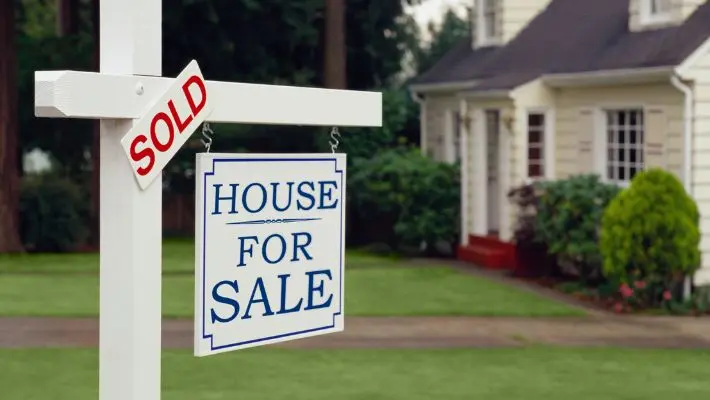
6 Signs it's the Right Time to Sell Your Home
Wondering if you should sell your home? Consider these six signs to decide whether or not you should list your home for sale.
With all of the news in the past year discussing how the U.S. housing market is favoring sellers, are you wondering whether or not you should sell your home?
Here are six signs to help you understand if it’s the right time to list your home.
#1. You’ve Built Up Enough Equity to Sell Your Home
If you’ve built up enough equity, you may be able to cover the transaction expenses with the money you’ve accumulated. Equity is the difference between your home’s worth and what you still owe back on your mortgage.
For example, you purchased your home for $363,300 — the average listing price in the U.S. as of June 2021 — and you only owe back $100,000. That means you have $263,300 built up as positive equity that can be used to help finance your sale, covering closing costs and placing a down payment on your new home.
Having enough positive equity to financially support your decision to sell your home can be a good sign that the timing is right. On the other hand, if you still don’t have enough equity, you may want to consider waiting to sell as you build up more.
#2. You’re Household is Outgrowing Your Current Space
Whether you’re seeking a new location to accommodate recent lifestyle changes or you and your family simply want to adjust the size of your living space, your household may be evolving beyond what your current home can offer.

Perhaps you’ve got a new job in a different location or the kids are transitioning to a new school. Or, your family is growing and you need more room to accommodate everybody comfortably.
This can be a strong sign that it may be time to sell your home and relocate to an option that better aligns with your current needs.
#3. You Don’t Need a Major Remodel to List
While sellers should always consider pre-listing renovations or remodels to potentially boost their home’s market value, it’s a good sign when you don’t need to fix any existing problems.
If your home is in good condition with no major issues, you won’t need to invest in a long and expensive remodeling effort to be able to sell your home. This helps make the selling process more affordable. Even if you do wish to make improvements to your home, you can focus on simple DIY strategies rather than an extensive renovation project.
#4. Your Local Market is Experiencing High Buyer Demand
If the local market is in your favor, it could be an advantageous opportunity to sell your home.
When the market is favoring sellers, it’s typically characterized by low inventory and high demand. As many buyers are active in the market, the lack of available listings drives up the competition.

The homes that are available for sale are likely to receive higher offers, preferable contingencies, and multiple bids. Property values also increase in these market conditions, so deciding to sell at these times can be a profitable strategy.
On the other hand, you may not want to initiate a sale if your market is oversaturated with listings and experiencing low demand. Talk to your real estate agent about your local market’s activity to discuss how the market may influence your selling experience.
#5. You’re Ready to Buy a New Home
Once you successfully sell your current home, you’ll need to step into the position of a buyer to purchase your next home.
You should only decide to sell your property when you can comfortably transition into your new home. This includes arranging your financing, covering moving costs, and paying for potential travel expenses — in addition to finding and purchasing your new home.
Homeowners should be factoring in their next steps when they’re deciding whether or not it’s the right time to sell their home.
#6. You’re Ready to Downsize
Not everyone transitions to a bigger home after selling their old one. The need to downsize can also be a strong reason to sell your home.
Downsizing can alleviate the homeowner’s responsibilities associated with the maintenance and upkeep of a large property. Moving into a smaller home can also offer an affordable option as utility and operational costs are typically lower.

If you’re approaching retirement or your youngest has just moved into a home of their own, the urge to downsize may be a sign that it’s the right time to post your home on the market.
For more tips and insights for homeowners, explore other articles on RealEstateAgents.com’s Blog.






